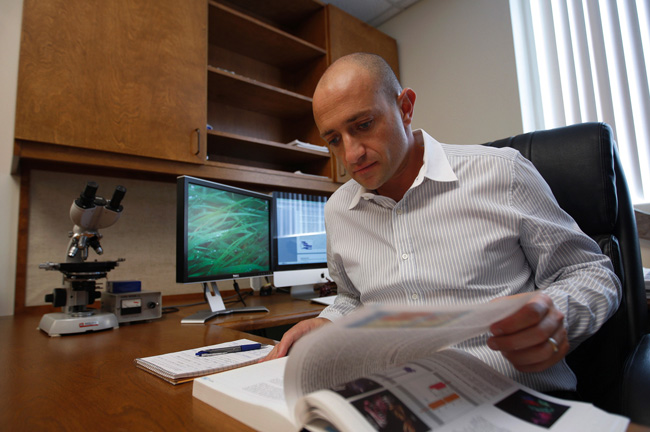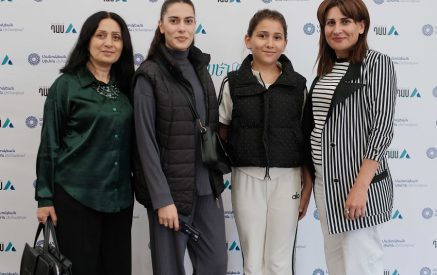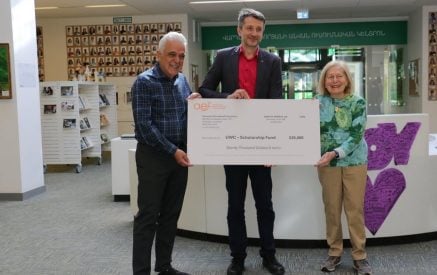
Micro biologist Sarkis Mazmanian, an expert in human health and disease, is seen during an interview and video taping by Home Front Communications for the MacArthur Foundation at the California Institute of Technology (Caltech) in Pasadena, California.
Ten years ago, Sarkis Mazmanian became intrigued by beneficial bacteria in the human body, instead of the dominant microbiological research on harmful organisms, such as the bacteria that causes staph infections.
Since then, his research as a Caltech professor has helped shift scientific concepts about how bacteria supports the immune system, and could lead to the development of natural treatments for diseases such as multiple sclerosis.
Mazmanian’s work was innovative enough to earn him a MacArthur Fellowship, announced Tuesday.
“(I was in) was complete and utter shock,” Mazmanian said from Armenia, where he is providing educational services for a week. “It’s like hoping to win the lottery.”
The John D. and Catherine T. MacArthur Foundation named Mazmanian one of 23 recipients of its “genius grants,” rewarding creative work across a wide range of fields.
The nomination process for the grants is confidential, and winners aren’t aware of anything until the foundation calls with the news.
Other 2012 recipients are Elissa Hallem, a UCLA neurobiologist; Uta Barth, a Los Angeles-based abstract photographer; and Chris Thile, a mandolin composer and past member of the band Nickel Creek.
Each recipient receives $500,000 paid over five years, which can be used for any purpose.
Mazmanian doesn’t have concrete plans for the money, but hopes to provide Armenians with better opportunities for higher education and improve poor laboratory conditions.
Last year, Mazmanian led research published in the journal Science that showed how beneficial gut bacteria holds the key for immune system reactions to pathogens such as salmonella.
“What we’ve discovered is that specific microbes are terrific at balancing immune responses,” he said. “What these organisms have `learned’ over millions of years is how to prevent unwanted attacks against them without not compromising their host.”
While the science has led to more probiotics available in supermarkets, either as medication or in yogurt, none of those products have been subjected to scientific rigor, Mazmanian said.
However, scientists have known for at least 100 years that some bacteria in the body is helpful.
Mazmanian’s Caltech lab is now trying to develop a bacteria molecule-based treatment for multiple sclerosis and inflammatory bowel disease.
The research so far has been limited to mice, but Mazmanian believes it will take only about two to three years to begin doing small clinical trials in humans.
“If we are lucky enough it would take probably close to 10 or 12 years before there’s actually a pharmaceutical therapy,” he said.























































